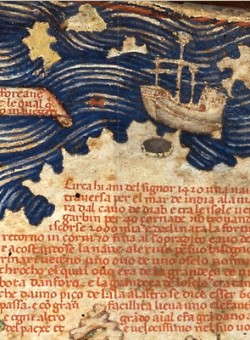In the Czech Republic, we are pre-occupied by local issues and are far more interested in the military forays of Russia in Ukraine along with local Chinese investments in our country, as opposed to Chinese economic and cultural forays into Africa, or in Latin America.
Nevertheless, Chinese infiltration into Africa is important, since we should understand how it differs from that of Russia, particularly since in the long-term, it will be far more successful.
Let’s take a look at Cape Verde, which has just over half a million inhabitants. Since the Cape has recently become a tourist destination, it is becoming economically stronger, and is breaking out of the ‘poor’ category of countries. The island Sal, which has an international airport and which jouses most of the tourists, is estimated to receive over one million tourists this year, up from 270 000 three years ago.
In February, one of the five TV channels on Cape Verdean television began to broadcast daily ten-minute courses of Chinese. This was unprecedented, as no language courses had ever been broadcast in Cape Verde. Furthermore, the program was broadcast in Chinese without subtitles. All this for 1,500 Chinese inhabitants.
On my way from the airport, my friend showed me a complex that the Chinese are building, which involves a nursery, primary school, secondary school, all with air-conditioned. The Chinese are building a lot in Cape Verde and throughout West Africa – schools, ports, dams, hotels, etc.
But the big difference is, that the Chinese are not only financing the projects, as the EU or World Bank would usually do. Instead, they import construction workers, build temporary accommodations, and provide all the materials. When the project is finished, they demolish the temporary accommodation, the workers leave and they hand the project over to the Government via a big ceremony.
So what’s behind it? The Chinese managed to negotiate a tax exemption for twenty years, to gain fishing rights in the Cape Verde territorial waters, and also to obtain all the licenses for their casinos. The locals say that the Chinese are acting openly – that there are no secrets in their intentions or demands. And, they pay reliably.
For Europe the message is this: in the eyes of the local government officials and entrepreneurs, the EU and the World Bank are missing out, since their financing comes with a whole bunch of conditions and preconditions. For example, “we will pay for your power plants, but your schools must teach environmental education”. “We will provide you with the financial means, but you yourself must take care of the development of the project and provide a workforce”.
Some of these requirements may be understandable, but they are totally unsuitable for less developed countries. So guess who is winning in Cape Verde and throughout West Africa?
The Chinese know that they can achieve influence in smaller countries via economic means, rather than by rattling their weapons or creating propaganda wars. Such policies will not exhaust their economy but rather strengthen it. None of this has anything to do with exporting ideology.
(Edited from the original)
published: 15. 11. 2015







